
When You Want To Integrate Body Stuff But Can’t
How do you follow the advice to integrate sensory awareness when you’re not getting info from your body?

How do you follow the advice to integrate sensory awareness when you’re not getting info from your body?
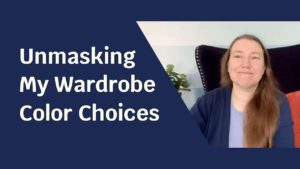
I recently found another way I’ve been masking without realizing it. Here’s me talking through how I realized this and let this mask drop away.
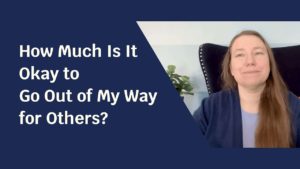
As you’re learning to establish healthier relationships and boundaries, the question comes up, “How much is it healthy to do things for others that use my own energy and effort?”

Meltdowns are no fun, but it is possible to avoid them. Here’s a framework for how.
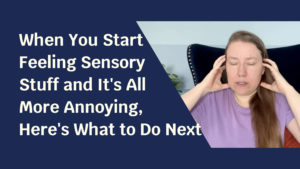
A common experience with later identified Autistics who start figuring out all the sensory stuff that they’ve been shutting out, is that instead of things getting better, everything is more annoying.

Sometimes the advice we get creates more problems than solutions. Here are a few thoughts on some anxiety advice I heard, and on developing trust in yourself.
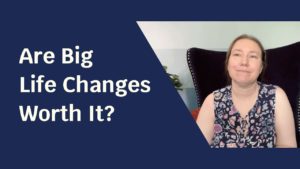
Are they worth it? A question that new clients (who want to make changes in their life but it’s also scary) sometimes ask me is,

Here are a couple examples of internalized ableism, and a few thoughts exploring what ableism is, how it gets so ingrained, and what the way out may be.
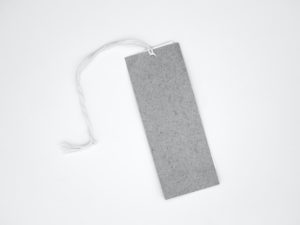
There’s so much history and personal experience surrounding diagnoses, and they’re more complicated than “just labels.”

Common questions about Heather’s style of life coaching with other adult Autistics to build their own autism-positive life.
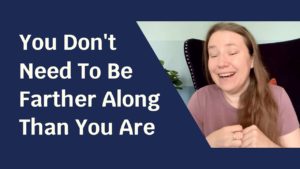
In our society, we get a lot of messages that once you figure out something, you need to go put it into practice. But that’s skipping a critical step.
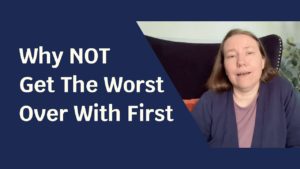
Have you heard the saying, “eat the worst first and save the best for last”? I think it’s fundamentally flawed. Here’s why, and what I’ve found works better.